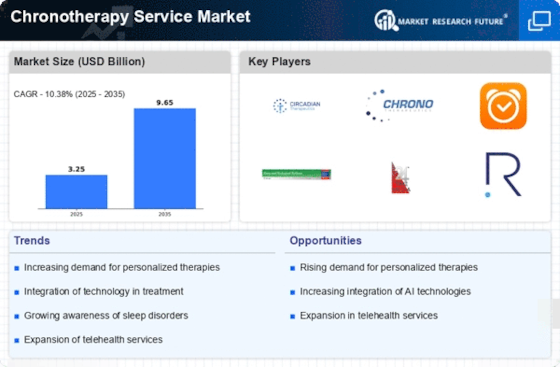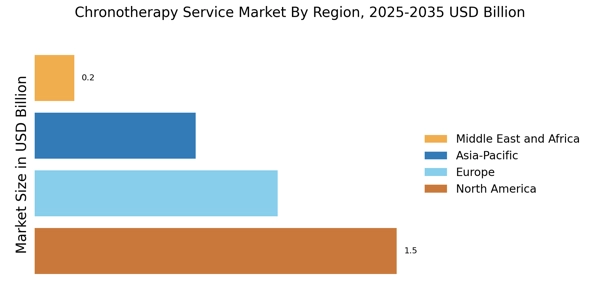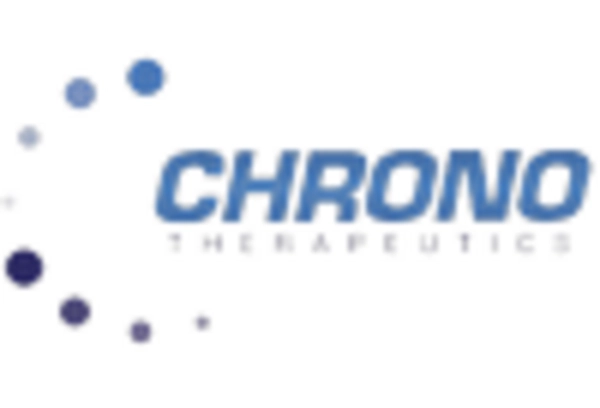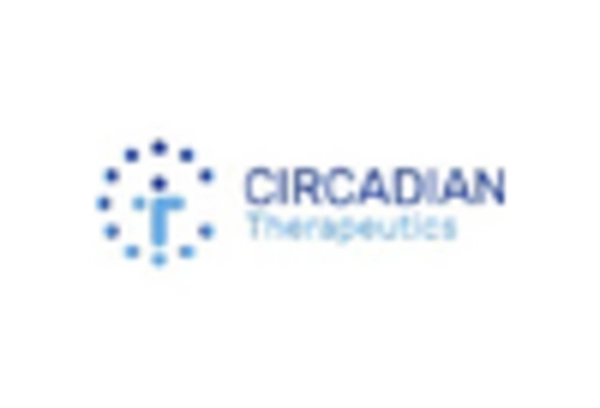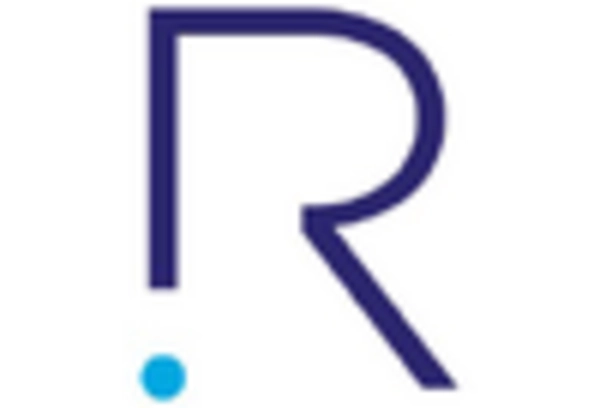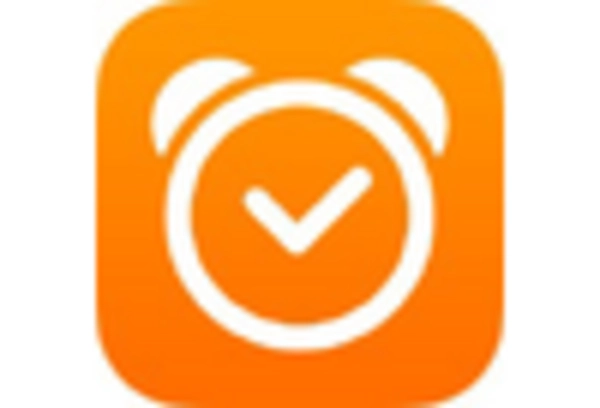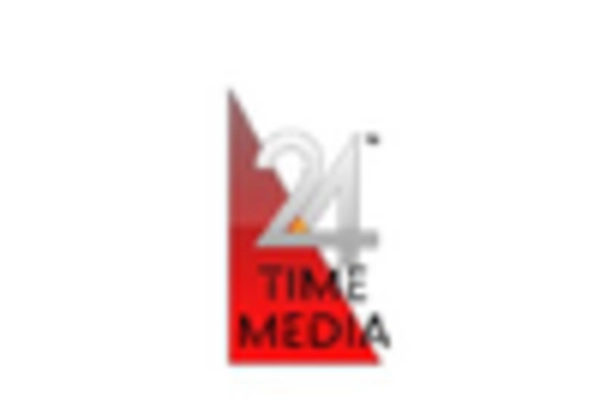Integration of Wearable Technology
The integration of wearable technology into healthcare is transforming the Chronotherapy Service Market. Wearable devices that monitor sleep patterns and circadian rhythms provide valuable data that can enhance the effectiveness of chronotherapy. These technologies enable personalized treatment plans that align with individual biological clocks, potentially improving patient adherence and outcomes. As the adoption of wearable technology continues to rise, healthcare providers are likely to leverage these tools to offer more precise chronotherapy services. This trend may lead to a more informed patient population, ultimately driving growth in the Chronotherapy Service Market as individuals seek data-driven solutions for their health concerns.
Advancements in Chronobiology Research
Recent advancements in chronobiology research are enhancing the understanding of how circadian rhythms influence health and disease. This growing body of knowledge is likely to propel the Chronotherapy Service Market forward, as new insights lead to innovative treatment protocols. Research indicates that misalignment of circadian rhythms can exacerbate various health conditions, including mood disorders and metabolic syndromes. Consequently, healthcare professionals are increasingly recognizing the potential of chronotherapy as a therapeutic strategy. The integration of these findings into clinical practice may result in a surge of interest in chronotherapy services, thereby expanding the market and improving patient outcomes.
Increased Focus on Preventive Healthcare
The shift towards preventive healthcare is influencing the Chronotherapy Service Market. As healthcare systems worldwide emphasize the importance of prevention over treatment, chronotherapy emerges as a viable option for maintaining health and well-being. By aligning treatment with the body's natural rhythms, chronotherapy can potentially prevent the onset of various health issues. This proactive approach is gaining traction among healthcare providers and patients alike, leading to an increased demand for chronotherapy services. Market data suggests that the preventive healthcare sector is expected to grow significantly, which may further bolster the Chronotherapy Service Market as more individuals seek to optimize their health through innovative therapies.
Rising Demand for Sleep Disorders Treatment
The increasing prevalence of sleep disorders, such as insomnia and sleep apnea, is driving the Chronotherapy Service Market. According to recent data, approximately 30% of adults experience sleep-related issues, leading to a heightened demand for effective treatment solutions. Chronotherapy, which aligns treatment with the body's natural circadian rhythms, offers a promising approach to managing these disorders. As awareness of the importance of sleep health grows, healthcare providers are increasingly incorporating chronotherapeutic methods into their practices. This trend is expected to contribute significantly to the expansion of the Chronotherapy Service Market, as more patients seek tailored interventions that address their specific sleep challenges.
Growing Interest in Holistic Health Approaches
The increasing interest in holistic health approaches is shaping the Chronotherapy Service Market. Patients are increasingly seeking treatments that consider the whole person, including their lifestyle, environment, and biological rhythms. Chronotherapy aligns well with this trend, as it emphasizes the synchronization of treatment with the body's natural cycles. This holistic perspective is appealing to a broad range of consumers, particularly those who are disillusioned with conventional medical practices. As more individuals prioritize wellness and seek integrative therapies, the demand for chronotherapy services is likely to rise, contributing to the overall growth of the Chronotherapy Service Market.


